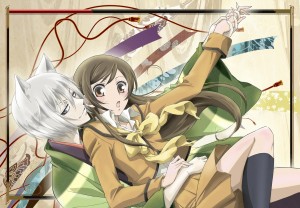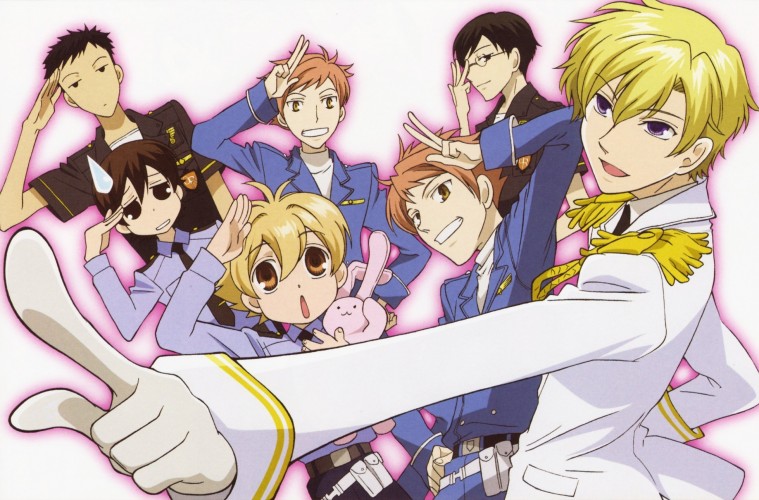Shoujo anime is my comfort food. It’s what I turn to when I’m feeling kind of down. I’ve written about how I’m not a fan of hate-watching, the term or the concept, but sometimes when I watch silly shoujo anime, I feel a twinge of guilt. It’s not because I’m embarrassed by it, but because of the cognitive dissonance that happens when you love something that doesn’t really align with your values. Shoujo, for the uninitiated, is a genre of anime and manga aimed at teen girls. Shoujo literally means girl in Japanese, and anime classics like Sailor Moon and Fruits Basket fall into this category.
My knowledge of shoujo is not exhaustive, and I’ve certainly seen anime that represents female characters well. Shoujo tells stories primarily about women, which is wonderful, but the older I’ve gotten and the more times I’ve watched my old shoujo standbys, the more I’ve realized that these anime may not be telling stories about women fairly. One anime that I come back to every year is everybody’s favorite reverse-harem show, Ouran High School Host Club. If you’re not familiar with it, the gist is that the main character Haruhi cross-dresses at school and is in a club with a bunch of handsome guys. Haruhi is funny and well-rounded and she has great relationships with the guys in the Host Club. But the problem is-she’s pretty much the only girl in the anime. There are some trope-y female side characters like Renge, who’s obsessed with making the Host Club’s actions fit her rom-com narrative, and as a whole, the women in the background are portrayed as gullible and trivial. Haruhi is the exception: she’s “not like other girls,” and that kind of approach does a disservice to women.
 Shoujo is a romantic comedy. Our lovely senior editor Olivia recently recommended the show Kamisama Kiss to me, and I devoured it. The main character Nanami is an autonomous and emotionally tough demigod, but just when you think that the show is headed in an awesome female-empowerment direction, Nanami falls in love with her fox-god familiar. Then she becomes about as empowered as a puddle. She blushes in front of him and is constantly worrying about what he thinks of her. The show is still fun, I would happily accept an Anime Dakimakura Pillow that is based on the show if someone gifted it to me! Like a lot of shoujo, it promotes a very adolescent view of romance that shows the main character falling all over herself to please a guy.
Shoujo is a romantic comedy. Our lovely senior editor Olivia recently recommended the show Kamisama Kiss to me, and I devoured it. The main character Nanami is an autonomous and emotionally tough demigod, but just when you think that the show is headed in an awesome female-empowerment direction, Nanami falls in love with her fox-god familiar. Then she becomes about as empowered as a puddle. She blushes in front of him and is constantly worrying about what he thinks of her. The show is still fun, I would happily accept an Anime Dakimakura Pillow that is based on the show if someone gifted it to me! Like a lot of shoujo, it promotes a very adolescent view of romance that shows the main character falling all over herself to please a guy.
If you’re looking for a feminist statement, shoujo is probably not where you’re going to find it. It occupies this weird space vacillating between empowering. It can turn from fun to infuriating in a split second. My best hope is that the genre continues to evolve with public opinion and offer a platform for complex young female characters.
Images via FanPop.


